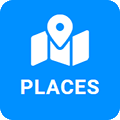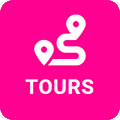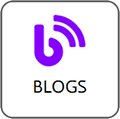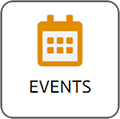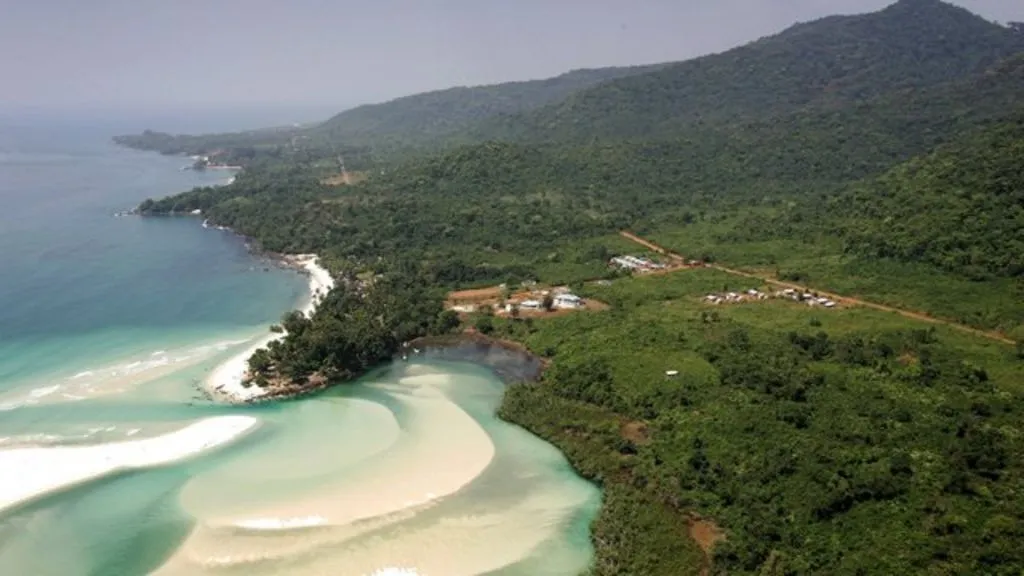Sierra Leone is a presidential republic on the southwest coast of West Africa, bordered by Guinea and Liberia, with its capital and largest city in Freetown. The country spans about 73,252 km² and counts roughly 8.46 million people as of the 2023 census. Official language is English, while Krio serves as a widely spoken lingua franca. The currency is the leone — since a 2022 redenomination, the new leone is abbreviated SLE. Landscapes range from mangrove and beach-lined coasts to interior plains and the Loma Mountains, capped by Mount Bintumani. The motto is Unity, Freedom, Justice, and the state is secular by constitution. Gambling exists in modest, locally regulated forms. Executive power rests with the directly elected president; the country maintains a national army and police, and participates in regional security with ECOWAS.
History
Long before Europeans charted its coast, Sierra Leone’s forests and river basins were home to diverse peoples for at least 2,500 years. Early communities such as the Limba, Temne, and coastal Bulom-Sherbro lived in independent chiefdoms shaped by initiation societies like Poro and Sande, trade networks, and gradual Islamic influence moving in from the north. The dense rainforest shielded parts of the region from Sahelian expansion and created a refuge for those fleeing conflict or conquest.
Portuguese navigator Pedro de Sintra mapped the Freetown peninsula’s hills in the 15th century, naming them Serra Lyoa — Lion Mountains — a toponym later anglicized to Sierra Leone. As Atlantic trade supplanted trans-Saharan routes, Europeans clustered along estuaries, exchanging goods, and tragically, captives. The coast became woven into the slave trade, with outposts like Bunce Island dispatching enslaved people to the Americas. In the late 18th century, British abolitionists founded a settlement for Black Loyalists, later joined by Nova Scotian settlers and Jamaican Maroons; the town was aptly named Freetown. After Britain outlawed the slave trade in 1807, the navy’s West Africa Squadron intercepted slavers and resettled “Liberated Africans” here, giving Freetown an enduring Creole — Krio — imprint.
Colonial expansion pushed inland in the 19th century, culminating in the Sierra Leone Colony and Protectorate. Resistance flared in the 1898 Hut Tax War, but Crown control held. Independence arrived in 1961, followed by a turn to a presidential republic in 1971. Postcolonial politics swung between civilian and military rule, amid patronage and resource-fueled distortions. From 1991 to 2002, a brutal civil war pitted the government, militias, and foreign partners against the RUF insurgency, a conflict infamous for atrocities, child soldiers, and the financing of violence through “blood diamonds.” ECOWAS forces, British intervention, and UN peacekeeping helped end the war, enabling disarmament and reconstruction. Democracy and growth have since taken root, yet legacies of poverty, corruption risks, and trauma remain. The country weathered the 2014–2016 Ebola crisis and continues to manage public health challenges and climate-vulnerable disasters while pursuing reforms, education, and infrastructure renewal.
Industry
The economy’s backbone includes mining — diamonds, gold, bauxite, and rutile — as well as agriculture and fisheries. Notable firms span finance and brewing, including Sierra Leone Brewery, now part of Heineken. The services base is gradually diversifying with telecom, logistics, and tourism. Despite mineral wealth, dependence on extraction has historically hampered broad-based industrialization; policy now emphasizes agriculture value chains, hospitality on the Peninsula’s coast, and eco-tourism in national parks.
Flora and fauna
Biodiversity reflects Western Guinean lowland forests, coastal mangroves, and inland savannas. Flagship species include western chimpanzees, a countrywide presence with significant populations in the Loma and Outamba areas, and the elusive pygmy hippopotamus around Tiwai Island and the Gola region. Birdlife surpasses 600 species, with rarities like the Gola malimbe and white-necked rockfowl. Reptiles include three crocodile species and sea turtles nesting on Sherbro and Turtle Islands. Deforestation and habitat loss threaten species, fueling conservation in Gola Rainforest National Park, Outamba-Kilimi, and sanctuaries such as Tacugama near Freetown. Export of precious fauna is controlled; travelers should avoid wildlife products.
Religion and races
Sierra Leone is religiously tolerant. Roughly 78–79% of the population is Muslim, about 20% Christian, and a small share adheres to traditional beliefs. Ethnically, about 18 groups comprise the population; the Temne and Mende are the largest, with Krios — descendants of Liberated Africans and settlers — forming a distinct minority. Interfaith cooperation is visible in national ceremonies and daily life, and mixed-faith families are common.
Wars and conflicts
The 1991–2002 civil war remains the central modern conflict, characterized by rebel-government combat, foreign involvement, and grave abuses. The Lome Accord and subsequent interventions led to disarmament and UN-backed stabilization. In the postwar era, Sierra Leone has contributed to regional missions, including in Mali, and pursues transitional justice and memorialization. Visitors will encounter sites tied to the slave trade and the war — reminders of resilience and recovery.
Standard of living
Sierra Leone ranks low on the Human Development Index and faces multidimensional poverty, yet governance reforms and anti-corruption efforts have advanced intermittently. Transparency rankings place the country around the lower-mid tier globally, with continuing pressure from civil society and surveys indicating public concern over corruption. Urban-rural disparities and high youth unemployment shape living standards, even as infrastructure and education access improve gradually.
Healthcare
Health services exist at national and district levels, with stronger capacity in Freetown than in rural areas. A yellow fever vaccination certificate is mandatory for entry; travelers should also consider hepatitis A and B, typhoid, and meningitis vaccines and take malaria prophylaxis. Pharmacies operate in cities like Freetown, though availability varies; comprehensive travel medical and evacuation insurance is strongly advised. Recent public health measures have included enhanced screening due to mpox risks.
Sports
Football is the leading sport, alongside athletics, boxing, and basketball. Sierra Leone fields teams in continental competitions and has appeared at multiple Summer Olympics since 1968, though without a medal to date. Surfing on Bureh Beach and community running events complement grassroots sport culture.
Holidays
Public holidays blend civic and religious observances: New Year’s Day, Independence Day on April 27, Labour Day, Christmas and Boxing Day, Good Friday and Easter Monday, and Islamic holidays including Eid al-Fitr, Eid al-Adha, and the Prophet’s Birthday, with dates varying by lunar calendar. Armed Forces Day and International Women’s Day are also observed.
Traditions
Community and hospitality anchor social life. Poro and Sande societies mark rites of passage; music and dance animate festivals. A home-based coffee-and-treats gathering — the spirit of which echoes kaffemik elsewhere — is common around milestones. Etiquette is modest and friendly: greet, ask before photographing people, and dress respectfully in villages and places of worship.
Interesting facts
Freetown’s harbor is among the world’s great natural anchorages and the historical hub of anti-slavery patrols after 1807. Bunce Island’s ruins testify to the transatlantic trade from the African side. Tiwai Island packs one of the highest primate densities into just 12 km². Beaches like River No. 2 doubled as idyllic backdrops — including a classic 1970s Bounty commercial — long before mass tourism. In 2025, the Gola–Tiwai Complex became Sierra Leone’s first UNESCO World Heritage Site.
Money
Currency: Sierra Leonean leone — SLE. As a guide, 1 USD ≈ 21 SLE at interbank mid-rates. Cards — Visa and Mastercard — see limited acceptance beyond major hotels and some city venues; Sierra Leone is still largely cash-based. ATMs exist in Freetown and larger cities but are unreliable; bring backup funds and use authorized exchangers. Avoid informal street exchange to minimize counterfeit risk. Tipping is discretionary but appreciated for good service.
Everyday details
Electricity is 230 V at 50 Hz; plug types D and G are common, so travel adapters are essential. Mobile coverage is fair in urban areas, patchy in remote regions. Smoking regulations vary — expect restrictions in public buildings and transport. Power cuts can occur — carry a torch and power bank.
Clothing
Light, breathable clothing suits the tropical climate. Add a hat, sunglasses, and high-SPF sunscreen for the coast, and long sleeves and pants plus repellent for evenings and forest trips. Modest dress is respectful in rural areas, churches, and mosques. For mountain nights, pack a light layer; sturdy footwear helps on muddy trails.
Tourism
Allow 7–10 days for a rewarding first visit. Base in Freetown to explore beaches on the Western Area Peninsula — Lumley to River No. 2, Tokeh, and Bureh — and add a day trip to Bunce Island for powerful historical context. Nature lovers can fly or drive to Bo and onward to Tiwai Island for primates and river trips, or head east to Kenema and Gola Rainforest for birding. Dry season — roughly November to April — brings sunny skies and accessible roads; the rains, peaking July–September, green the country but flood routes and complicate logistics. Build buffer days for weather, prebook coastal stays in peak months, and use reputable guides for heritage and wildlife experiences.
Types of tourism
Nature and wildlife — rainforest trekking, birding, river trips; beach and surf — Peninsula and islands; history and heritage — Bunce Island, Freetown sites; community and culture — village stays, festivals; adventure — kayaking, hiking, off-the-grid eco-lodges.
Tourist attractions list
— Gola–Tiwai Complex — UNESCO-listed rainforest and river island biodiversity hotspot
— Tacugama Chimpanzee Sanctuary — Rescued chimps in the Western Area Forest Reserve
— River No. 2, Tokeh, Bureh Beaches — Crescent bays, clear surf, community projects
— Bunce Island — Ruins of a British slave fort in the Sierra Leone River
— Outamba–Kilimi National Park — Savannah-forest mosaic with elephants and hippos
— Freetown National Museum and Railway Museum — Culture and colonial-era locomotives
— Banana Islands — Rustic villages, snorkeling, and heritage traces
UNESCO statuses per the country list as of 2025.
Non‑touristy attractions list
— Wara Wara Mountains — High-country hikes and village hospitality in the north
— Rogbonko Village — Community-based stays and farm life in the interior
— Sherbro and Turtle Islands backwaters — Off-grid mangroves and artisanal fishing
— York and Tombo working harbors — Everyday maritime life on the Peninsula
— Kambui Hills near Kenema — Birding tracks with few visitors
These quieter stops reward slow travel with local guides.
Local cuisine
Rice anchors meals, paired with hearty stews: cassava leaf with fish or meat, groundnut soup thickened with peanut, yebeh of root crops, and fufu as a scoop. Fresh coastal seafood — barracuda, tilapia, lobster — shines at beach shacks. In Freetown, a large Lebanese community adds falafel, hummus, and grilled meats to menus. Drinks range from hibiscus bissap and tamarind juice to locally tapped palm wine known as poyo. Street food is tasty but choose busy, fresh-cooking spots; bottled or treated water is best. Tipping in restaurants is optional.
Why visit
For travelers who crave connection over crowds, Sierra Leone brings wild coasts, intimate wildlife encounters, and human stories rooted in both pain and hope. You’ll swim in turquoise bays by day, hear rainforest at dusk, and meet people who turn welcome into an art form.
Safety for tourists
Violent crime against visitors is uncommon but petty theft can occur, especially in busy areas of Freetown — stay alert, avoid displays of wealth, and use hotel safes. The biggest risks are road safety, weather, and health: avoid night travel, expect rough surfaces off main routes, and plan for intense rains in season. Malaria is endemic — take prophylaxis and use repellent and nets. Public demonstrations occur; monitor local advice. Authorities have highlighted health screening for mpox; comply with checks. Choose licensed operators for boats and tours.
Tourist infrastructure
Capacity is growing but still limited. In Freetown and along the Peninsula you’ll find a spread of hotels from boutique to international brands, with improving culinary scenes. Elsewhere, expect simpler guesthouses and eco-lodges. Service is warm, English is widely spoken in tourism, and connectivity and power can be inconsistent. Investment is improving roads, airport facilities, and training.
Entry rules
A visa is required for most visitors; options include an e‑visa in advance or visa on arrival for around USD 80. Your passport should have at least 6 months’ validity, and a yellow fever vaccination certificate is mandatory. An airport security fee of USD 25 applies on arrival and departure. Customs tightly regulate precious stones — export requires a license — and you must declare taxable or restricted goods. Requirements can change; always check the latest before travel.
Transport
International arrivals land at Lungi International Airport across the estuary from Freetown; transfers run by ferry or fast boat shuttles. In cities, taxis are plentiful and often shared; minibus poda-podas run set routes. Long-distance travel mixes private cars, shared vehicles, and occasional domestic flights; book reputable operators and factor in road conditions and weather.
Car and driving
Driving is on the right. Main highways between Freetown, Makeni, and Kenema are paved, but many roads are potholed or unsealed, especially after rains — a high-clearance or 4x4 vehicle is wise upcountry. Avoid night driving due to poor lighting, unpredictable obstacles, and security concerns; expect occasional unofficial roadblocks outside the capital. An International Driving Permit is useful if your license is not in English. Strictly avoid drink driving and carry vehicle papers at checkpoints.
Quiet hours
Noise is part of city life, but authorities periodically enforce limits on beach strips — for example, curbing loud music around 2:00 a.m. on Lumley Beach. In residential areas, keep volumes low late at night.
Daily budget
Approximate per person, excluding flights, at 1 USD ≈ 21 SLE:
Budget: 350–550 SLE per day — simple guesthouses, shared taxis, local food.
Mid-range: 700–1,200 SLE per day — comfortable hotels, private transfers, guided day trips.
Comfort: 1,300–2,000 SLE per day — top coastal stays, fine dining, private guiding. Prices vary by season and location; carry cash as ATMs and cards are unreliable.
What tourists should avoid
Do not use drones without authorization — registration and operational limits apply and include altitude caps, VLOS rules, and restricted zones. Avoid photographing sensitive sites like security facilities. Don’t swim in rough surf without local advice or approach wildlife. Skip informal currency changers and unlicensed diamond sellers. Don’t travel upcountry at night or during severe rains. Dress modestly in religious spaces and always ask before photographing people.
Climate
Tropical monsoon climate: a dry season roughly November–April and a rainy season May–October, with peak downpours July–September. The coast receives very heavy rainfall — Freetown can exceed 3,000 mm annually — while the interior is slightly drier. Best overall time to visit is the dry season, especially December–January for the coast and wildlife; the wet season offers lush landscapes but frequent flooding.
Traveler tips
— Visit a travel clinic 4–6 weeks before departure; bring a yellow fever certificate, malaria meds, and a personal first-aid kit.
— Plan extra time between connections; road and weather delays happen.
— Prebook coastal lodging in high season; choose licensed boats for river and island trips.
— Carry small USD or SLE notes and a spare power bank; power and ATMs can be unreliable.
— Learn a few Krio phrases — a warm “How di bodi?” goes a long way.
- The World’s Most Dangerous Countries for Tourism in 2025
- Niger
- Pilaf around the world: from ancient traditions to tourist routes
- Cuba
- The Most Dangerous Tourist Destinations for Women: Where to Travel with Extreme Caution
- The Highest Settlements in the World: Life on the Roof of the Planet
- Travel to Cambodia
- Arabat Spit
- Where to Find Gold in Nature
- Entrance tickets with an open date appeared in the General Staff Building
- House of Russian-Korean Friendship Opened in Primorye on the Border with the DPRK
- Bars Around the World Where Celebrities Left Their Mark
- Bacalao – salted cod as a symbol of travel and the taste of Portugal
- Ratmanov Island
- Vienna Opera Ball
- A quick look at Lucknow: one day in the Uttar Pradesh capital
- Sydney
- Global traveler risk ranking 2025
- Nanai
- And in Africa the mountains are this high


